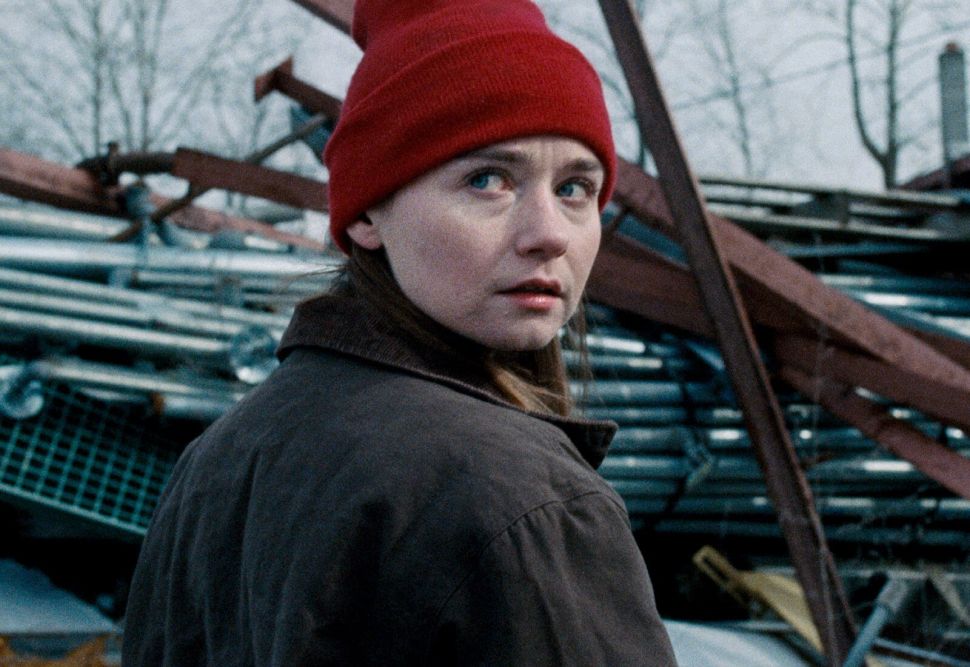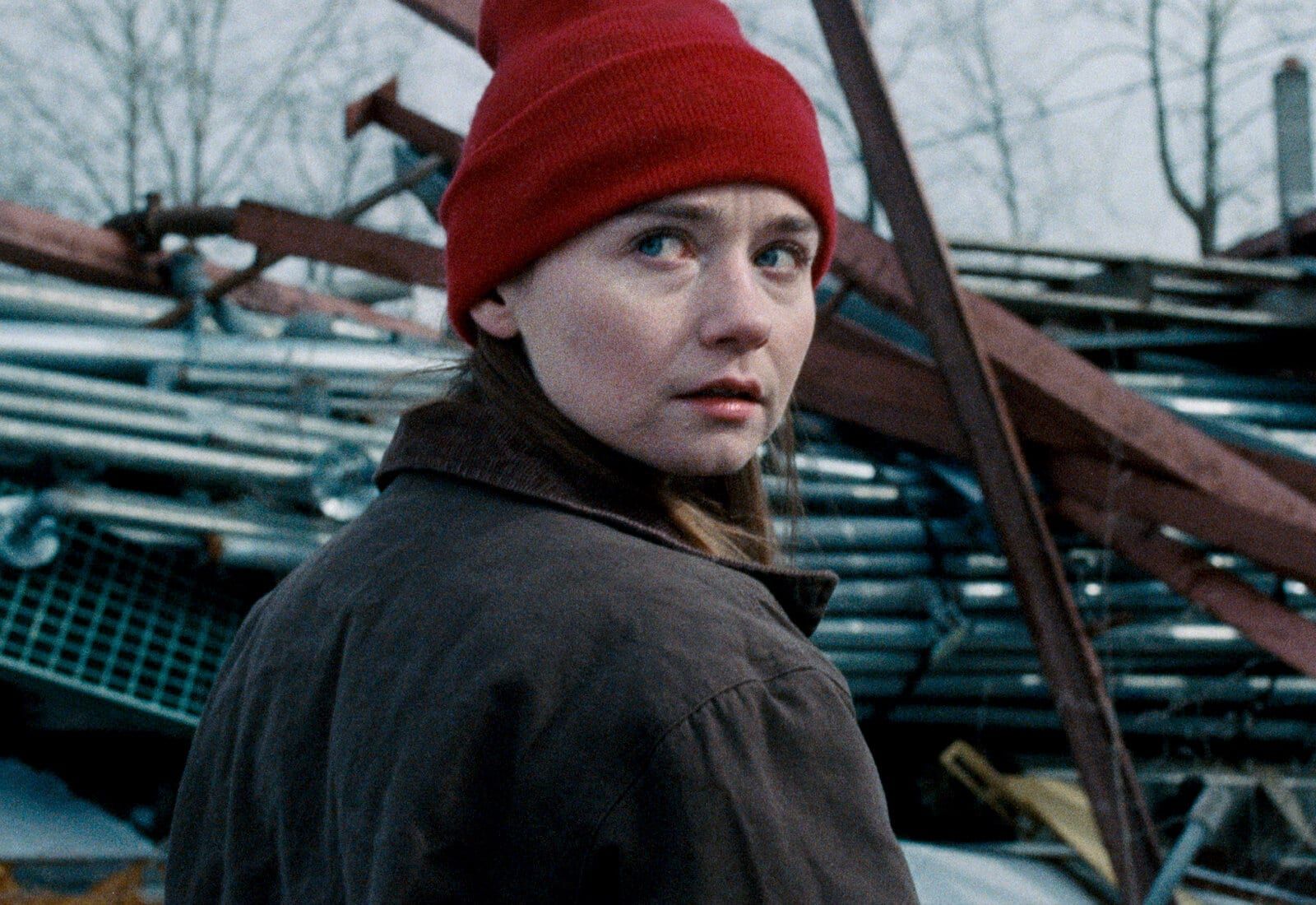
Holler IFC Films
Holler, the debut film from writer-director Nicole Riegel, breathes life into its scrappy characters utilizing scrappy resources and aesthetics. Dependent on Riegel’s 2016 limited of the exact title, the characteristic follows higher schooler Ruth Avery (Jessica Barden) and her older brother Blaze (Gus Halper), scavengers hoping to make finishes satisfy in a compact Ohio factory town struggling severe financial downturn. The opening scene finds Ruth absconding with a neighbor’s trash, with Blaze as her getaway driver in their old pink pickup truck. It’s all really tiny and basic, but as the digicam rushes to maintain up with Ruth, and the rustling of the garbage bags falls in sync with the score, it commences to come to feel like the heist of the century.
In the lifeless of winter season, the siblings sell discarded cans to a neighborhood junkyard operate by Hark (Austin Amelio), a scraggly self-starter who’s been compelled to decreased his value. With the Averys’ h2o already shut off, eviction notices piling up and their addict mother drying out in jail rather of rehab, they are given minor selection but to be part of Hark’s inner circle, an unlawful scrap metal breakdown outfit that strips wire and other fittings from deserted buildings by night, and re-sells them to abroad clients by working day.
For Ruth, whose capacity to pay for college hangs in the stability, Hark’s crew may possibly be her only way out — if she even wants to go away.
|
HOLLER ★★★ |
Two critical issues adhere out about Ruth from the moment she’s introduced. The 1st is her brilliant pink woolen hat, which feels like a very important component of her persona, and which she wears for most of the runtime. Combined with her brilliant crimson university bag, she simply cannot assistance but stand out amongst the light red hues of her brother’s pickup and the surrounding buildings, as if she’s destined for some thing additional hopeful than what’s all around her. The second matter is her worn-down seem — a subdued, worn out expression which Barden carries about from her stellar function on The Close of the F***ing Globe. She’s a teenager now at the end of her rope, compelled to increase up far too promptly by her addict mother, Rhonda (Pamela Adlon in a small but effective purpose), and by a earth where by even kindness feels fraught, and trapped in a perpetual tug of war with survival and self-sufficiency. Hark, for occasion, veers involving ally and adversary as the movie goes on. Rhonda’s former co-worker Linda (Becky Ann Baker) attempts her ideal to seem out for the Avery children, but her foodstuff-packaging assembly line position is in constant threat, so she has to glance out for herself and her individuals far too. All people attempts their finest, even as the invisible hand of corporate capitalism tightens its grip.
The unique pink of Ruth’s hat is also part of a exceptional visible tapestry. Like Chloé Zhao’s Nomadland — a movie whose visual compositions replicate the paintings of Norman Rockwell — Holler is a quintessentially American film about the American doing the job class and the thoughts of abandonment that have run rampant considering the fact that the 2008 economic downturn. The movie doesn’t spend a lot time on the wider earth of politics, but it capabilities a handful of news broadcasts and oblique mentions of then-President Trump’s failure to bring jobs back again to rural towns. (The movie experienced its festival premiere in tumble 2020.) Even so, whilst these transient mentions enable establish the financial backdrop, the relaxation of the movie features much a lot more delicate visual reminders of dashed American goals. White snow and grey skies obscure any perception of horizon or escape, whilst the coloration timing paints the town in hues of cold, unforgiving blue. This dull and frigid palette carries in excess of to the costumes and other structure decisions, so that for most of the daylight scenes, the frame is littered with purple, white and blue — substantially of it washed out, like as soon as-lofty guarantees which have very long due to the fact pale.
Riegel and cinematographer Dustin Lane shot Holler on Super 16. Its digital launch helps make no effort and hard work to conceal the flaws and scratches in the 16mm movie print, and the motion picture is better for it.
Each individual frame feels textured and tangible. Photographs of frozen scrap metallic currently being sawed apart feel alive, and the sparks which briefly consume the foreground sense like unusual moments of warmth and probability invading the picture’s cold, dim fabric. The digital camera does not romanticize this perform. In fact, it captures the scars and injuries that arrive with it, but it also captures what diligently stripping apart this metallic represents for Ruth and her potential. It’s a glowing, ephemeral next opportunity, in a city in which second probabilities are really hard to arrive by.
Where by the cinematography shines most, however, is in minimal-mild scenes like that of Ruth, Blaze, Hark and their crew scavenging empty properties at night time, assisted only by flashlight. Tremendous 16 movie captures a wide assortment of visual distinction, which the filmmakers take entire gain of in their use of light and shadow. They make a haunting tapestry rife with silhouettes formed by motor vehicle headlamps, a glance which grows all the extra intensive when an similarly determined rival scrap crew will come into engage in, and composer Gene Beck’s rating commences to echo like clanging metal.
Even in scenes which current no quick danger, the body always speaks to Ruth’s story. Although her fellow crew associates glance down and look for for wiring alongside the flooring, Ruth’s aptitude and opportunity are mirrored in POV shots of her gazing up at wires along the ceiling, as she considers and contemplates. She’s not a genius by any stretch, but there’s a continuous, looming perception that she’s considerably more able than her co-employees, and is currently being robbed of option by the environment all over her. When Ruth sits nevertheless and demonstrates on her encroaching conditions, the frame’s suffocating shadows are pierced only by distant mild resources reflected in her eyes — and in a single scene in unique, reflecting off the dried tears on her cheek. The film’s tough actual physical material may perhaps be grounded in jagged, twisted steel, but it has an ethereal tenderness every time Riegel captures Ruth in isolation, and the digicam pierces her wry, sarcastic demeanor to expose her vulnerabilities.
The story is by no usually means devoid of pleasure, and of minor victories a roller rink in particular offers important respite. Having said that, when the figures are not being crushed by circumstance, editor Kate Hickey holds on them extended ample to unearth delicate jealousies and brewing conflicts which they cannot completely express in terms. For occasion, hints of romance between the teenage Ruth and the a lot older Hark are first captured by means of Blaze’s disapproving glances. These and other tensions sooner or later boil to the area in the sort of traveling tempers, and fleeting moments of aggression that experience additional unsafe than a million CGI explosions. American cinema is no stranger to poverty porn, but Holler’s authenticity emanates not only from its actual physical facts, but from the way it rounds out each individual character’s humanity — their virtues and vices, their dreams and anxieties — and every single character’s intellectual outlook, from how they experience about their oppressive natural environment, to what they think about lies further than its borders.
A movie that feels immersed in fog, and one that reserves even sunlight for important times, Holler is a gorgeously-textured exploration of the way ruthless corporatism trickles down by every layer of a country, and a method, right up until it falls on the shoulders of a younger woman and obscures her potential. Jessica Barden pens sonnets with her silence, strolling a hard line involving youth and the burdens of adulthood, in a overall performance that brims with distressing consciousness of Ruth’s position in the environment. It’s a coming-of-age story robbed of frolic and innocence, which are swapped out for the vicious pitfalls of an American criminal offense saga — two worlds that ought not meet, and two worlds the film makes an attempt to untangle one silent conquer at a time.
Observer Opinions are normal assessments of new and noteworthy cinema.
Holler is available on demand.

